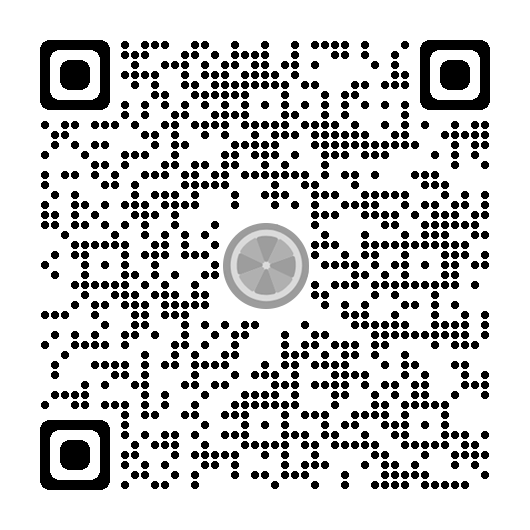Writing an Abstract
Barry Mauer and John Venecek
We discuss the following topic on this page:
We also provide the following activity:
 Writing an Abstract
Writing an Abstract
Put simply, an abstract is a 150-500 word paragraph that provides a quick overview of your paper. Publications may have specific requirements for what to include in an abstract but, in general, they include your research purpose, methodologies, methods, key evidence, results and conclusion. Most undergraduate students would never consider writing an abstract for an assigned research paper. However, as we will discuss here, writing an abstract, especially early in your process, can be an effective way to evaluate your research question.
Before we begin, watch this short video with Jessica, a Texts & Technology graduate student, discuss the importance of the abstract:
Texts & Technology – Part 6 [2 min 56 sec]
Key Quotes from the Video:
Articulating Your Purpose in the Abstract:
“Write an abstract early in your drafting process and your research writing process because an abstract should absolutely have a definitive statement once you, in the abstract, talk about the context of your research and your methodology – you mention those things briefly in an abstract. Often what follows from that is, ‘the purpose of this study is to …’ or, ‘in this article, I argue that …’ Being able to articulate that early on is a really good test of focus because sometimes I would try to write that sentence and it would be two or three sentences long and I need to be able to say this much more concisely.”
Getting Feedback on Your Abstract:
“[Wendy Belcher suggests] emailing a colleague or friend or advisor and say, ‘Hey John, I’m working on this research project and here’s what I think my argument is … ‘ and sending that out to a few trusted friends or colleagues just to get some trusted feedback. Because, really, when something is arguable it means that you’re taking a position in response to this conversation that you’ve entered, that you’ve been listening to, and now you’re going to jump in and say something. And to be able to say it cleanly and clearly and directly so that somebody else who hasn’t been reading all the literature that you’ve been reading for the last weeks or months – if the people you send it out to go ‘Oh, that’s a really cool idea . . . ‘ or ‘I’m not sure what you mean there …’ that can be a really good check that what you’ve got is a focused argument.”
Jessica referenced Wendy Belcher’s Writing Your Journal Article in 12 Weeks in which Belcher suggests talking through your argument with a friend/colleague/advisor. She also suggests writing an abstract early in the writing process and sending it to friends/colleagues/advisors for review. Jessica also noted the “natural reflexiveness” that happens when she’s reading literature, analyzing data, and targeting a particular journal. She’s listening to lots of scholars while looking for her place to jump into the conversation. When she does, she’ll need to have something meaningful to add to the discourse on her topic.
Even if you’re not planning to present on or publish your paper right away, the exercise of writing an abstract can help you articulate your purpose, framework, methodologies, methods, scope, results, and conclusions. If there are any aspects of your project that remain unclear, this process will help you iron them out.
Tips for Writing a Good Abstract[1]
- What makes your work unique? The answer may be in your methods, how you apply theory to a research problem, and where your research fits and builds upon other research.
- Do you need to include more critical context? Such context showcases the importance of your work in relation to others, and it helps the readers know how it relates to the field.
- What is the “problem” and your “solution”? This question is another way for you to think about the purpose of your study. The problem may just be a gap in the current literature.
- Do you list the most important aspects of your methods and results? This synopsis usually indicates the “meat and potatoes” of your work. Just as you may look for studies with abstracts detailing methodology akin to how you want to do research, think about others reading your abstract, perhaps with the same intent.
- Is your abstract coherent? Invite someone unfamiliar with your work to read your abstract. Can that person understand it? Use complete sentences and active verbs, if possible. It is important for your work to be understandable and as engaging as possible, while at the same time being concise.
- How do you conclude your abstract? Are you listing the main takeaways for the reader?
- Is your abstract delivering and not just promising? Your abstract should communicate that you have completed your study and are reporting the results. Therefore, use present tense (delivering) rather than future tense (promising).
Even if you don’t need to write an abstract for your assignment, doing so can be an effective way to evaluate your research question. Start early and revise it as your research develops. Your abstract should evolve along with your project and it can be a strong indicator of what’s missing and what needs adjusting. Leaving the abstract for the very last step is common, even among experienced researchers, but we recommend approaching this as an ongoing exercise rather than a final chore.
Sample Abstract
The Machiavellian Spectacle in Shakespeare’s Measure for Measure
Notice how clear, direct, and concise the writing is here. It provides the reader with a clear sense of the subject, problem, theory, research question, and thesis.
We strongly recommend that you share drafts of your abstract with others, especially your mentor, to get feedback and improve your work.
If you are using an offline version of this text, access the quiz for this section via the QR code.

 Exercise
Exercise
- Write an abstract of 150-500 words following the guidelines above.
- In the “Back Matter” of this book, you will find a page titled “Rubrics.” On that page, we provide a rubric for Creating an Abstract. ↵

